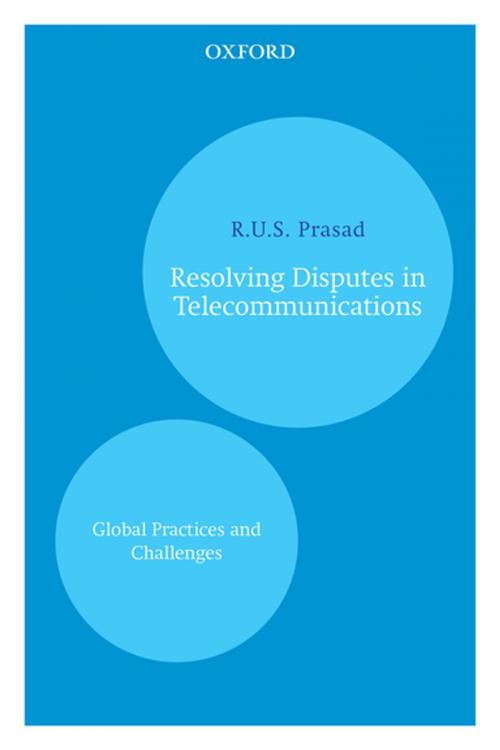Resolving Disputes in Telecommunications
Global Practices and Challenges
Nonfiction, Reference & Language, Law, Alternative Dispute Resolution, Communications, Arbitration, Negotiation, & Mediation| Author: | R.U.S Prasad | ISBN: | 9780199088195 |
| Publisher: | OUP India | Publication: | November 3, 2010 |
| Imprint: | OUP India | Language: | English |
| Author: | R.U.S Prasad |
| ISBN: | 9780199088195 |
| Publisher: | OUP India |
| Publication: | November 3, 2010 |
| Imprint: | OUP India |
| Language: | English |
The Indian telecommunication sector has seen far-reaching changes in the last two decades due to increasing globalization, rapid pace of technological innovations, and rising consumer demands. Myriad and complex problems have arisen as a result of these developments. Though attempts have been made to tackle these issues at the levels of policymaking, regulation, and dispute settlement, these have not been able to keep pace with the rapidly changing scenario, often leading to paralysing dispute situations. In this important and timely volume, the author focuses on the so far neglected area of dispute resolution. The work delves into the disputes arising from increased competition, heightened consumer expectations, and the need to balance competition and universal service obligation. Beginning with the theoretical underpinnings of dispute resolution, the author analyses various methods such as regulatory-based adjudication, alternative dispute resolution (ADR), and resolution by sector-specific tribunals. He compares the management and disputes resolution practices followed in countries such as the UK, France, Germany, Denmark, the USA, and Canada, to arrive at a framework for a more effective mode of dispute resolution.
The Indian telecommunication sector has seen far-reaching changes in the last two decades due to increasing globalization, rapid pace of technological innovations, and rising consumer demands. Myriad and complex problems have arisen as a result of these developments. Though attempts have been made to tackle these issues at the levels of policymaking, regulation, and dispute settlement, these have not been able to keep pace with the rapidly changing scenario, often leading to paralysing dispute situations. In this important and timely volume, the author focuses on the so far neglected area of dispute resolution. The work delves into the disputes arising from increased competition, heightened consumer expectations, and the need to balance competition and universal service obligation. Beginning with the theoretical underpinnings of dispute resolution, the author analyses various methods such as regulatory-based adjudication, alternative dispute resolution (ADR), and resolution by sector-specific tribunals. He compares the management and disputes resolution practices followed in countries such as the UK, France, Germany, Denmark, the USA, and Canada, to arrive at a framework for a more effective mode of dispute resolution.















